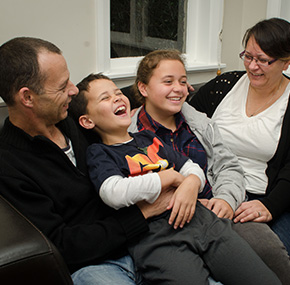PSN Lecture Series

Improving Child Wellbeing
A Free Public Lecture Series 5 April – 20 July
Presented by Presbyterian Support Northern
Ki te kore ngā pūtake e mākūkūngia,
e kore te rākau e tupu.
If the roots of the tree are not watered,
the tree will never grow.
Join highly respected, thought-provoking international and national experts to discuss ways
to tackle child poverty and improve the wellbeing of tamariki.
5 April – 20 July 2018
Speakers
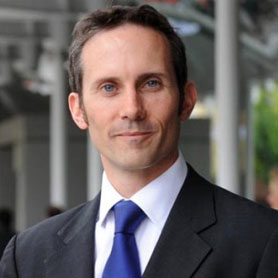
Dr. Andrew Leigh
Shadow Assistant Treasurer, Australian Federal Government
TOPICS
Over the past generation, both Australia and New Zealand have experienced a significant increase in the gap between rich and poor. In both countries, the pay gap has widened between the corner office and the shop floor, and young families are finding themselves priced out of the housing market. But there are also differences in the causes and policy responses in our two nations. What can New Zealand and Australia learn from one another about how to stem the rise of inequality and create a more egalitarian society?
Randomised trials are all around us – from supermarkets to Sesame Street, farms to Facebook. And yet their use in policy remains surprisingly rare. Drawing on his new book, Randomistas: How Radical Researchers Changed Our World, Andrew will discuss how this powerful evaluation tool can hone our welfare and tax systems, improve our early childhood programs, help reduce crime, and generally make government work better. He will argue that randomised trials represent a more modest approach to policymaking, in which we use more scientific rigour to determine what works best for ameliorating disadvantage.
BIO
Andrew Leigh is the Shadow Assistant Treasurer and Federal Member for Fenner in the ACT. Prior to being elected in 2010, Andrew was a professor of economics at the Australian National University. He holds a PhD in public policy from Harvard, having graduated from the University of Sydney with first class honours in Law and Arts. Andrew is a Fellow of the Australian Academy of Social Sciences, and a past recipient of the ‘Young Economist Award’, a prize given every two years by the Economics Society of Australia to the best Australian economist under 40. His books include Disconnected (2010), Battlers and Billionaires (2013), The Economics of Just About Everything (2014), The Luck of Politics (2015), Choosing Openness: Why Global Engagement is Best for Australia (2017) and Randomistas: How Radical Researchers Changed Our World (2018). Andrew is a keen marathon runner, and hosts a podcast titled “The Good Life”, which is available on Apple Podcasts (formerly iTunes). Andrew is the father of three sons – Sebastian, Theodore and Zachary, and lives with his wife Gweneth in Canberra.
Learn more about Dr. Andrew Leigh here
Watch Dr. Andrew Leigh’s full presentation
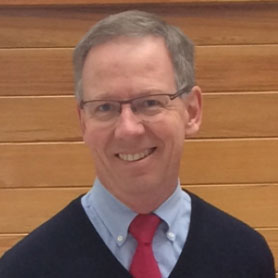
Michael Reddell
New Zealand Economist
TOPIC
Possibilities and (lack of) passion: lifting productivity, for our kids’ sake.
BIO
Michael Reddell spent 30+ years doing economic analysis and policy advice in a range of institutions in New Zealand and overseas. At the Reserve Bank he ran a number of areas, including Head of Financial Markets, responsible for monetary policy implementation, foreign reserves management, and the analysis of financial system risks.
He was resident economic adviser to the central banks of Papua New Guinea and Zambia, the latter as an IMF-appointee. He spent two years as Alternate Executive Director on the Board of the International Monetary Fund and two years as Special Adviser at The Treasury.
He now runs the blog Croaking Cassandra.
Learn more about Michael Reddell
Watch Michael Reddell’s full presentation
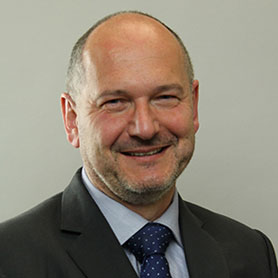
Dr. Tony Burton
Deputy Chief Economic Adviser, The New Zealand Treasury
TOPIC
Do public investments in human capital diminish with age?
BIO
As the Deputy Chief Economic Adviser, Tony oversees the Treasury’s research and advice on broad economic policy issues, embedding the living standards framework and developing economics capability at the Treasury.
His work is focused on improving the knowledge base for policy; including, policy focused research, the use of ‘big data’ and improving our understanding of non-government social sector providers. Learn more about Dr. Tony Burton here.
Watch Dr. Tony Burton’s full presentation
Watch Dr. Tony Burton’s interview
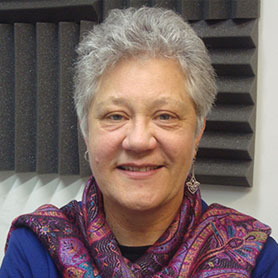
Dr. Nicola Atwool
Associate Professor, The University of Otago
TOPIC
Institutional and practice barriers in New Zealand to reducing child poverty
BIO
Dr. Atwool is Associate Professor at the University of Otago. She has professional qualifications in social work and child psychotherapy. She was employed for nearly twenty years in a variety of roles by what is now Child Youth and Family and a position in the Office of the Children’s Commissioner.
She is now a Senior Lecturer in the Department of Sociology, Gender and Social Work.
The goal of her research is to influence policy and practice to improve outcomes for children and young people exposed to adversity. Learn more about Dr. Nicola Atwool here.
Watch Dr. Nicola Atwool’s full presentation
Watch Dr. Nicola Atwool’s interview
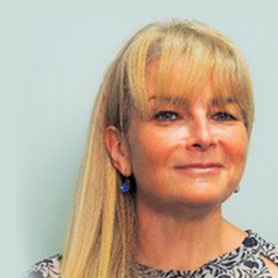
Dorothy Adams
Acting Chief Executive, Social Investment Agency
TOPIC
The role social housing plays in child wellbeing.
BIO
Before becoming the SIA’s Acting CE, Dorothy led its Social Investment Unit. Previously, she was GM Insights, Ministry of Social Development (MSD), responsible for leading its data, analytics and evidence hub.
Prior to joining the Ministry in 2008, Dorothy worked in local government for 10 years specialising in policy and governance, with her most recent role being Manager, Strategic Development at Hutt City Council. Dorothy has also held senior roles in the Department of Labour, NZ Employment Service and was an advisor to the Minister of Employment. Learn more about Dorothy Adams here.
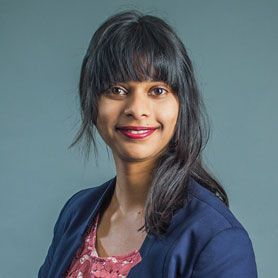
Jenesa Jeram
Policy Analyst, the New Zealand Initiative
TOPIC
How do you measure “child poverty” and what will the new Child Poverty Reduction Bill achieve?
BIO
Jenesa is a Policy Analyst focusing mainly on social issues and lifestyle regulations.
She has co-authored publications on poverty, inequality, social impact bonds, economic growth
and housing. Learn more about Jenesa Jeram here.
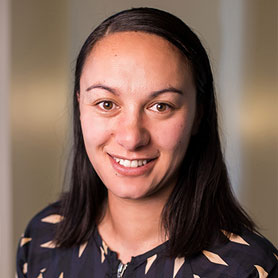
Aimee Kaio
Programme Manager, Te Rūnanga o Ngāi Tahu
TOPIC
Promoting work and entrepreneurship in a small community.
BIO
Aimee is Programme Manager, Te Rūnanga o Ngāi Tahu. Her career has predominantly been in the hapu and Iwi development space, with a keen interest and focus on intergenerational wealth and wellbeing. Aimee is currently the Programme Manager of Tribal Economies-Ngāi Tahu, Te Runanga o Ngāi Tahu.
Aimee also owns a small consultancy business, NORA (Nga Ohu Rapu Ara) providing research, evaluation and business coaching services. Aimee is a PhD candidate 2017, focusing on Tribal Economies and Intergenerational Wealth Models.
Aimee sits on a variety of Iwi/Hapu/Māori/Community Governance and Advisory boards. Learn more about Aimee Kaio here.
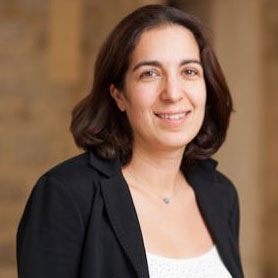
Dr. Mina Fazel
Associate Professor, University of Oxford
TOPIC
School-based mental health interventions: What’s best policy and practice?
BIO
Dr. Fazel is Associate Professor, University of Oxford, working with Oxford Health NHS Foundation Trust to develop better school-based mental health services for children across Oxfordshire secondary schools. She also works with the Early Interventions and Service Redesign theme of the Oxford CLAHRC to evaluate changes in child mental health services across the region.
Her NIHR post-doctoral fellowship was to develop a mental health toolbox for schools that any front-line worker, even if they do not have a mental health background, can utilise in the school setting.
Her clinical work is as a child and adolescent psychiatrist in the Department of Children’s Psychological Medicine at the Children’s Hospital, Oxford University Hospitals. Learn more about Dr. Mina Fazel here.
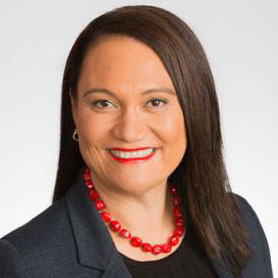
Hon. Carmel Sepuloni
Minister for Social Development and Disability Issues
Closing Lecture
BIO
As the Minister for Social Development and Disability issues, Carmel is looking forward to building a fairer welfare system that treats New Zealanders with the respect, upholds their dignity and supports them and their families to realise their potential.
Carmel has always been committed to improving social, health and educational outcomes for all New Zealanders but has especially focused during her career on low socio-economic groups, Māori, Pacific, disabled people and sole parents. During her political career Carmel has brought to the fore the slashing of the training incentive allowance, made public the impact of cuts to ACC funding for survivors of sexual violence, campaigned for better legislation around social workers and fought for the right to privacy for social service users. Learn more about Hon. Carmel Sepuloni here.
Lecture Series
In a January 2018 interview with the New Zealand Herald, Prime Minister Jacinda Ardern reaffirmed the coalition government’s agenda to make New Zealand one of the best places in the world to be a child. PSN CEO Denise Cosgrove says that there is current momentum across all sectors, from government to business to service providers, to apply the best ideas and solve big problems.
Through this public lecture series, PSN brings together experts to discuss what is needed to advance child wellbeing. PSN facilitates these conversations drawing on the insights of more than 150 years providing social services on the ground.
Presbyterian Support Northern (PSN)
PSN is one of New Zealand’s largest social service providers for some of the most pressing issues facing our country today: poverty, family violence, suicide, and aged care.
With a forward-thinking and progressive approach, PSN, through its unique combination of services and deeply-held core values, strives to create integrated solutions to enable a better life for everyone, especially those most vulnerable.

